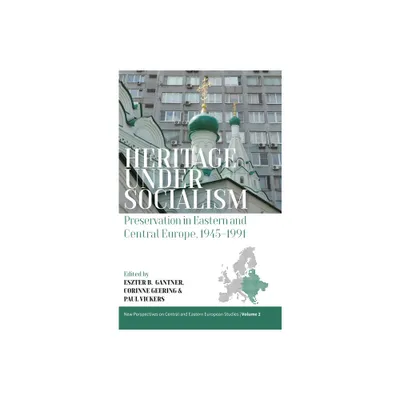Home
Cuba Was Different: Views of the Cuban Communist Party on the Collapse of Soviet and Eastern European Socialism
Loading Inventory...
Barnes and Noble
Cuba Was Different: Views of the Cuban Communist Party on the Collapse of Soviet and Eastern European Socialism
Current price: $35.00


Barnes and Noble
Cuba Was Different: Views of the Cuban Communist Party on the Collapse of Soviet and Eastern European Socialism
Current price: $35.00
Loading Inventory...
Size: OS
*Product Information may vary - to confirm product availability, pricing, and additional information please contact Barnes and Noble
In
Cuba Was Different
, Even Sandvik Underlid explores the views of Cuban authorities, official press, and Party members as they reflect back on the collapse of Soviet and Eastern European socialism. In so doing, he contributes to a better understanding as to why the Cuban system—often associated with Fidel Castro leadership—did not itself collapse. Despite the loss of its most important allies, key ideological referents, and even most of its foreign trade, Cuba did not embrace capitalism.
The author critically examines and analyzes the collapse of the USSR and Eastern Europe as reported in the Cuban Communist Party newspaper Granma, both as they unfolded and subsequently through the lens of additional interviews with individual Party members. This focus on Cuba's Communist Party provides new perspectives on how these events were seen from Cuba and on the notable resilience of many party members.
Cuba Was Different
, Even Sandvik Underlid explores the views of Cuban authorities, official press, and Party members as they reflect back on the collapse of Soviet and Eastern European socialism. In so doing, he contributes to a better understanding as to why the Cuban system—often associated with Fidel Castro leadership—did not itself collapse. Despite the loss of its most important allies, key ideological referents, and even most of its foreign trade, Cuba did not embrace capitalism.
The author critically examines and analyzes the collapse of the USSR and Eastern Europe as reported in the Cuban Communist Party newspaper Granma, both as they unfolded and subsequently through the lens of additional interviews with individual Party members. This focus on Cuba's Communist Party provides new perspectives on how these events were seen from Cuba and on the notable resilience of many party members.












